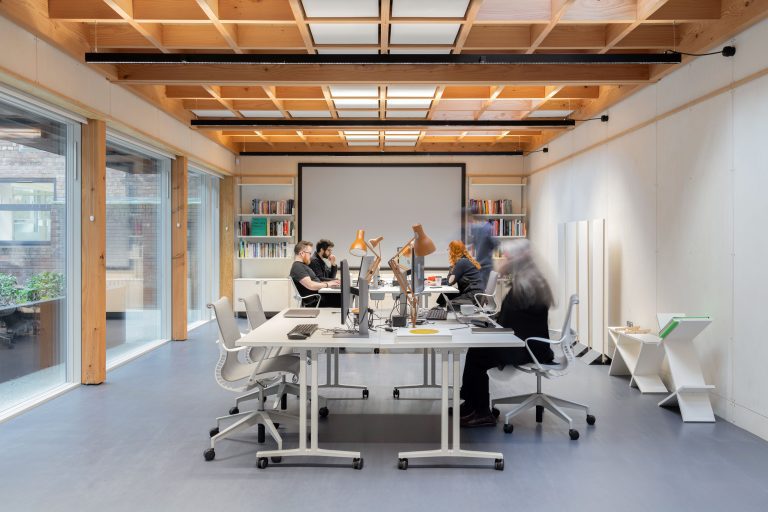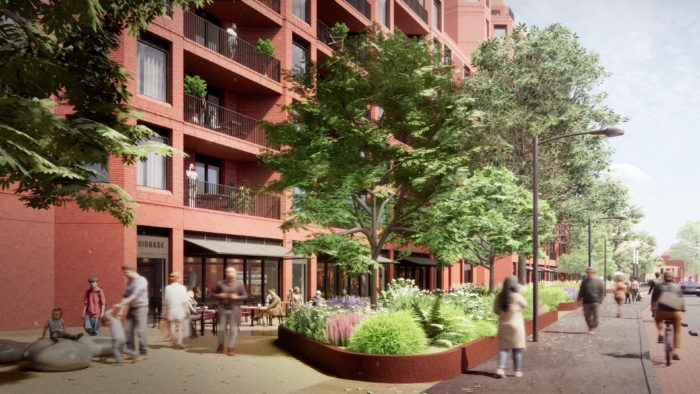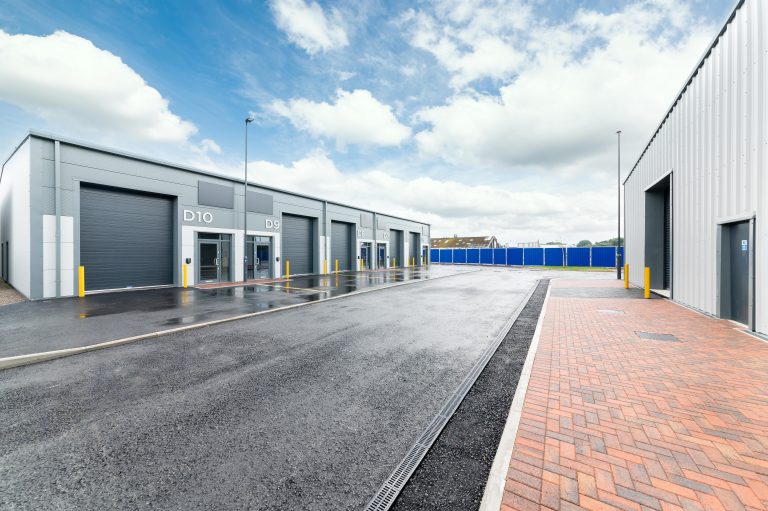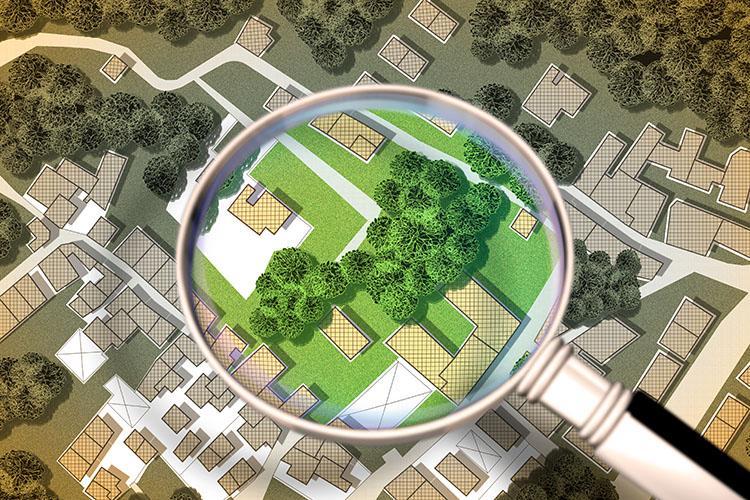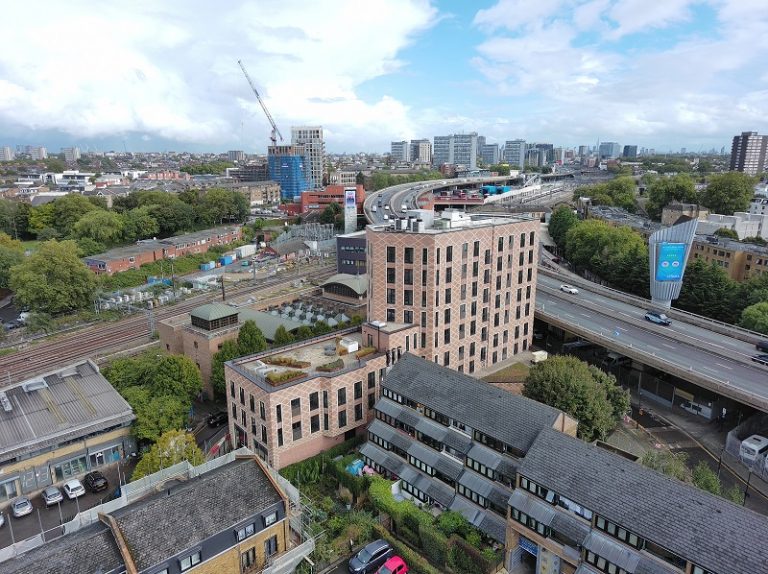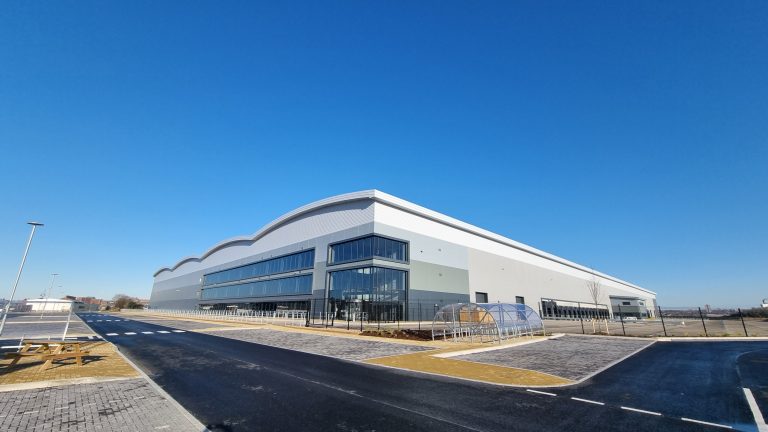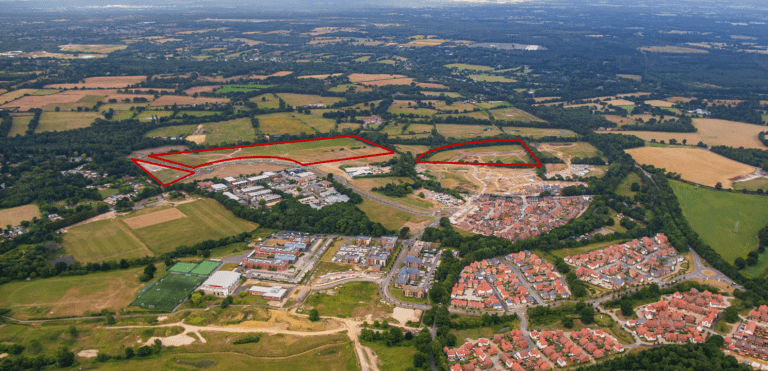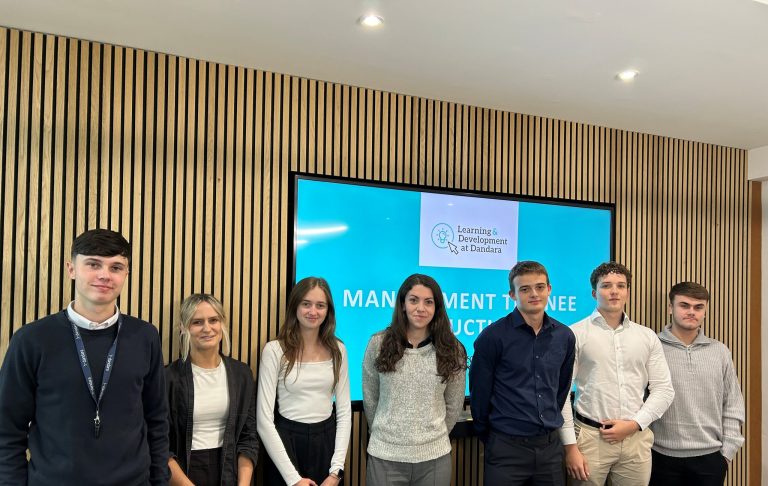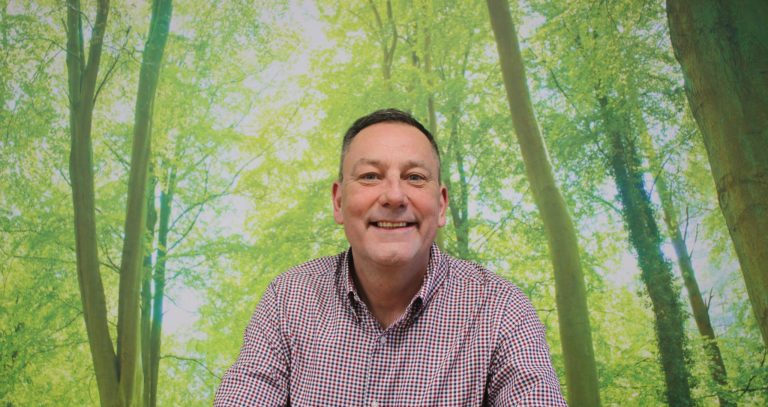Hathaway are delighted to collaborate with Building Systems UK to design, supply and install, the external envelope package for the new speculative logistics and distribution facility on behalf of Tungsten Properties on the banks of the River Mersey, Birkenhead, Merseyside. Hathaway is a leading company in the UK specialising in the design, manufacturing, and installation of roof and wall cladding systems, with a shared commitment to shaping the future of sustainable building practices. Building Systems UK, a Tata Steel enterprise, offers comprehensive building envelope solutions for the construction industry. Their services include the provision of insulated roof and wall panels and site assembled systems, profiles, structural roof and floor decking, as well as market leading steel processing services. ARC 500, the largest distribution and production unit in Merseyside, is a new 494,750 sqft facility designed to accommodate large-scale logistics operations. Its strategic location offers excellent access to the M53 motorway and the Port of Liverpool, making it an ideal choice for businesses seeking a well-connected hub. Appointed by Winvic Construction Ltd as part of the delivery team, Hathaway and Building Systems UK were committed to ensuring ARC 500 is constructed as a net zero carbon facility. The project aimed and achieved significant environmental, social, and governance (ESG) credentials, including a BREEAM Excellent rating and an EPC A+ target, adding a valuable economic asset to the ARC 500 Birkenhead Freeport. Hathaway have successfully collaborated with Winvic to deliver a number of net zero and low carbon projects. These projects have been assessed in line with the Royal Institute of Chartered Surveyors (RICS) Whole Life Carbon Assessment for the Built Environment (Edition 1) and the UK Green Building Council’s (UKGBC) 2019 net zero Carbon Framework Definition. As an original founding member of Winvic’s Green Supply Chain, Hathaway takes pride in contributing to sustainable building practices. As part of the Green Supply Chain, Hathaway works closely with Winvic to develop innovative and sustainable product solutions, through engagement with our valued supply chain, with a focus on carbon reduction and energy-efficient materials. The primary objective is to minimise the embodied carbon emissions across the entire lifecycle of projects. The sustainable choice in Building Systems UK As the key supplier for the ARC 500 project, Building Systems UK, provided a complete building envelope solution. This included Trisobuild® site assembled roof and wall systems featuring a newly developed profile specifically designed for the office areas of the building. The core mission of Building Systems UK is to “shape the future of sustainable buildings,” and they achieve this by prioritising transparency and thorough environmental reporting. The company operates an Environmental Product Declaration (EPD) program, allowing the generation of project-specific EPDs that are tailored to meet unique project specifications and requirements. This capability sets Building Systems UK apart, providing them with unmatched product environmental reporting. In addition to their comprehensive EPD program, Building Systems UK holds Responsible Sourcing certification under the BES 6001 standard. This certification, combined with their ability to produce customised EPDs, solidifies Building Systems UK as a sustainable supplier of choice for construction projects. Their commitment to environmental transparency and responsible sourcing significantly contributes to achieving sustainability goals, such as obtaining credits for a BREEAM Excellent rating, which was targeted for the ARC 500 project. This highlights how Building Systems UK’s practices not only align with, but actively support, high sustainability standards in modern construction. Driving Down Emissions Building Systems UK’s manufacturing facility in Shotton, North Wales, is located just 15 miles from the ARC 500 project site, showcasing commitment to local procurement and material supply. This proximity not only bolsters the local economy but also significantly reduces delivery emissions, aligning with the project sustainability goals. To further decrease carbon emissions and support the transition to net zero construction, freight deliveries for the project were conducted using bio-fuelled vehicles. Switching to Hydrotreated Vegetable Oil (HVO) fuel for these deliveries resulted in a significant reduction in CO2 emissions compared to traditional fossil fuel diesel. Additionally, Hathaway supplied HVO fuel for on-site plant and machinery, which can help reduce associated emissions by up to 90%. Hathaway’s commitment extends to minimising their carbon footprint and reducing associated scope emissions. They work collaboratively with supply chain partners to ensure that the project’s sustainability targets are met, demonstrating a proactive approach in advancing the construction industry towards more environmentally responsible practices. Preserve Our Timber – Reduce, Reuse, Recycle Hathaway and Building Systems UK are committed to minimising the environmental impact of their business operations. Recognising wood as a valuable natural resource, we understand that the current rate of deforestation is unsustainable. To address this issue, it is crucial to adhere to the principles of the waste hierarchy, focusing on reducing, reusing, and recycling materials throughout operations. In collaboration with their supply chain partners, Hathaway has implemented several wood reuse initiatives to reduce waste sent to landfills and preserve timber resources. Examples of these initiatives include a wooden bearer take-back scheme in partnership with Building Systems UK and a pallet return service. These programs aim to extend the life cycle of wood products, promoting sustainability and supporting efforts to conserve natural resources. For any remaining waste wood or timber that cannot be reused, Hathaway has partnered with Community Wood Recycling, a UK-wide social enterprise that has been in operation since 1998. Community Wood Recycling collects waste wood from companies, creating reclaimed timber stores. These stores support the sale of bespoke wooden products and provide training and development opportunities for unemployed and disadvantaged individuals. Hathaway is pleased with its proactive collaboration with its valued supply chain partners to ensure that wood is diverted from landfills and instead reused or repurposed. The exceptional work carried out by Community Wood Recycling not only helps reduce waste and conserve natural resources but also has a positive social impact by offering skills development and employment opportunities. Hathaway is proud to support and promote this initiative, recognising its significant environmental and social benefits. Promoting and Leading on New Innovations New innovations and technologies are essential in
